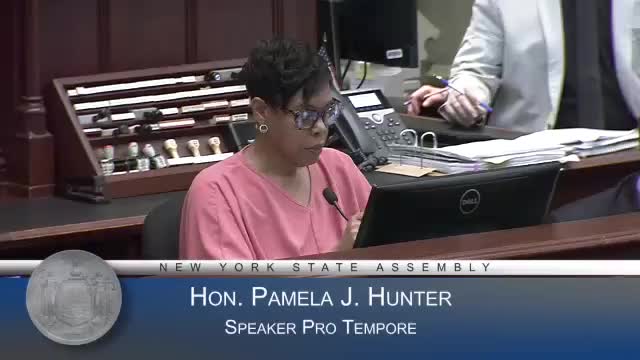Article not found
This article is no longer available. But don't worry—we've gathered other articles that discuss the same topic.

Votes at a glance: key bills passed on the Assembly floor, June 5, 2025

Assembly approves peer-to-peer mental-health program for police officers

Assembly approves insurance coverage expansion for stuttering therapy

Assembly authorizes state board to join ERIC to clean voter rolls

Assembly requires DAs to mail final felony dispositions to named crime victims

